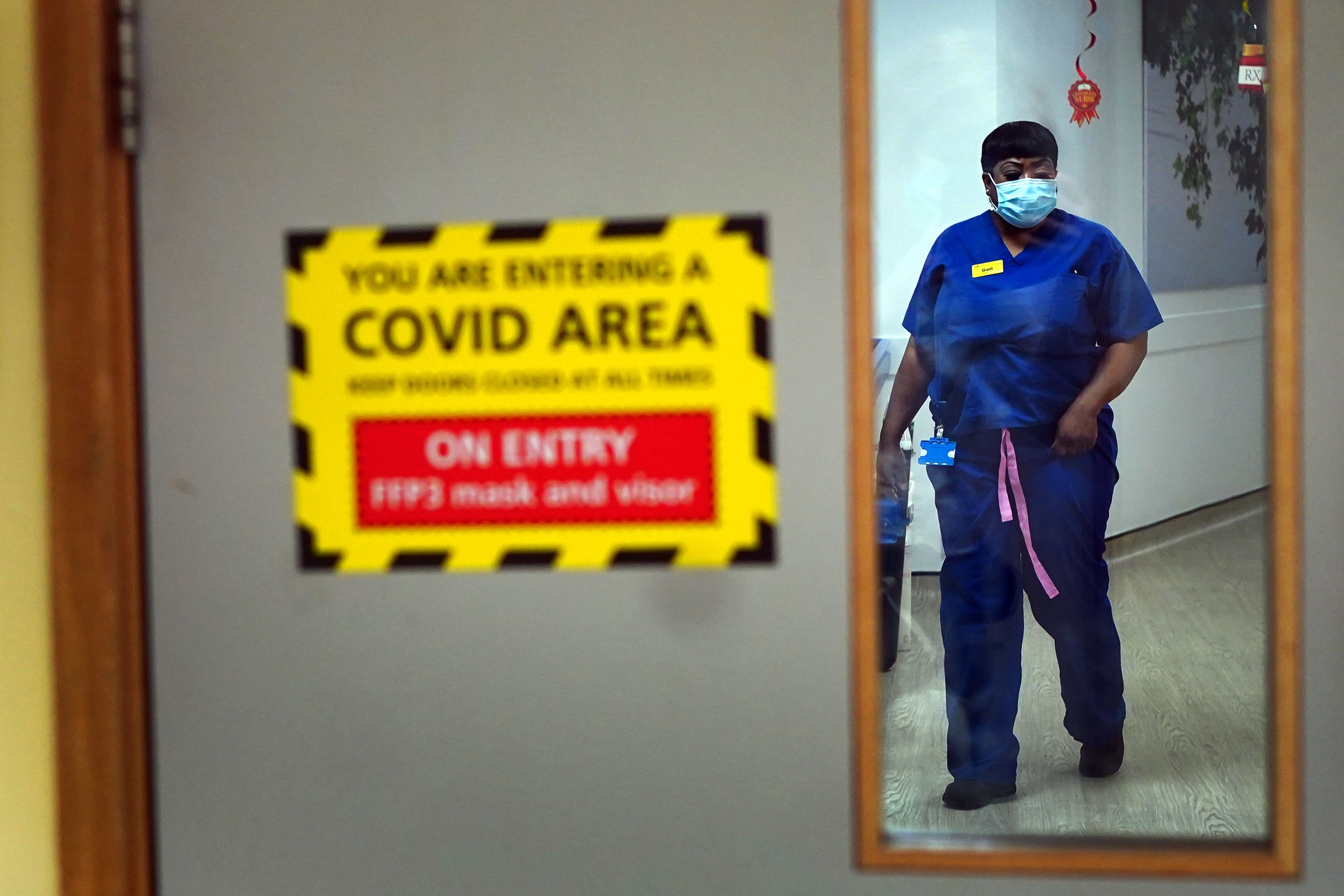Researchers develop way to break down masks using fresh air and electricity
Researchers from Heriot-Watt University have developed the process that degrades a common medical mask using fresh air and 200 watts of electricity.

University researchers have found a way to break down common medical masks using air and electricity, a method which could one day help cut the mountains of waste created by hospitals and doctors surgeries.
The Heriot-Watt University researchers developed the method which could cut the use of incinerators if it can be scaled up, and instead use the cold plasma system which uses around 200 watts of electricity – around the same as a PlayStation.
Dr Humphrey Yiu, assistant professor at the university, said: “PPE from the healthcare sector has always been a waste challenge. It’s high-volume and must be treated as biohazardous waste, which means it is incinerated.
“Incineration is expensive and not environmentally friendly – reaching the high temperatures required, over a long period of time, uses a lot of energy and generates a significant amount of pollutants.
“We proved that our small-scale, cold plasma system can degrade single-use face masks, the use of which has exploded since the pandemic. They are still widely used around the world.
“Our low power air plasma method efficiently degrades surgical masks in four hours, so that 90% of the mask is gone.”
The team’s findings have been reported in the academic journal Materials Degradation.
According to the World Health Organisation, by March 2020 it was estimated that healthcare professions were using around 89 million masks a month.
We’d like to develop models that could be installed in hospital wards or GP practice rooms, or work at the hospital scale, where hundreds of tons of PPE need to be destroyed
In the same year, 3.4 billion single-use masks or face shields were thrown away every day, creating a mountain of waste.
And it is an expensive business getting rid of the biohazard materials. Before the pandemic, the university said, every tonne of medical waste costs around £450 to dispose of in the UK and 790 dollars (£635) in the United States.
Transportation of the martials from places like hospitals and doctors’ surgeries to incineration sites also poses another challenge.
But the system developed by the Edinburgh-based university is mains-powered and produces a highly reactive environment that etches the plastics in the mask, and eventually converts them into carbon dioxide and water.
Professor Martin McCoustra, who specialises in complex surfaces research, said: “Plasma is already used to decontaminate surfaces as it destroys biological materials like bacteria and viruses as easily as any plastic.
“In this work, we’ve gone beyond simple decontamination to actually break down waste material by exposing the waste to the plasma for longer and at higher applied powers.”
But the small scale system has limitations, the researchers said, with the ear loops on the masks being extremely stubborn. They could only degrade those by 9%.
Dr Yui said the focus now is scaling the system up to prove it could work at the hospital scale.
“We’d like to develop models that could be installed in hospital wards or GP practice rooms, or work at the hospital scale, where hundreds of tons of PPE need to be destroyed,” he said.
Bookmark popover
Removed from bookmarks